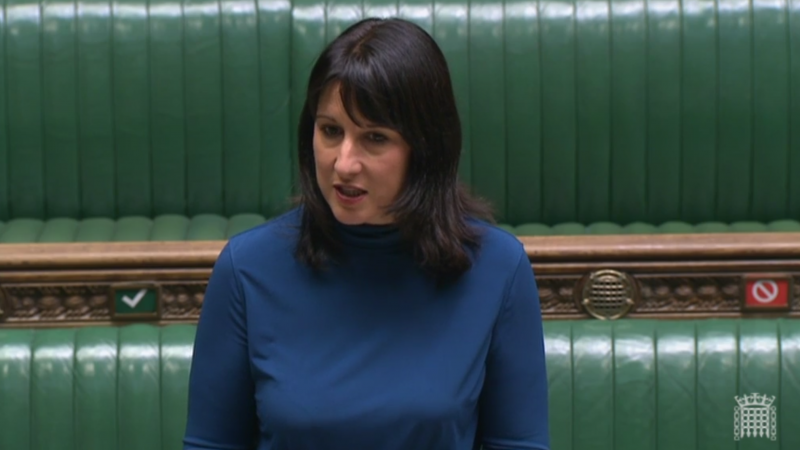
The House of Commons has voted down a Labour motion that called on the government to drop private firms such as Serco from its highly-criticised coronavirus test and trace system and instead expand the role of public health teams.
The opposition day motion from Labour had demanded that the government expand funding to local health authorities and give them a leading role in Test and Trace – but it was resoundingly defeated tonight by a majority of 80 votes.
Labour frontbencher Rachel Reeves described the use of private firms such as Serco, despite their failing records on contact tracing during the pandemic, as a “political choice” by a government “obsessed with a failed model of outsourcing”.
The Shadow Chancellor of the Duchy of Lancaster called on the government to adopt the more localised model used in Wales, in an impassioned debate where many MPs shared the impact the system was having on their constituents.
Reeves said: “This government is obsessed with a failed model of outsourcing. It’s failing to reach people who have come into contact with the virus, it’s not getting information to local councils… and it is wasting hundreds of millions of pounds worth of taxpayers’ money.”
Government ministers claimed that Serco had gone through “fair and open competition” to receive the contract and that having a nationwide system was the only way to make sure “we can see how the virus is spreading”.
But Reeves argued: “The Prime Minister promised a world-beating test and trace system, and yet we have one that is barely functioning, and a system that is so broken that SAGE is saying it is making next to no difference.
“The truth is as soon as the government looked toward a privatised solution a political choice was made about how to respond to a public health crisis. Serco is not integrated into the fabric of any of our communities.”
Taking a leaf out of Ed Miliband’s book, Reeves offered to give way to the minister at the despatch box if they would reveal all of Serco’s subcontractors after it was found that 85% of their contact tracing services were sold on to third-party firms.
Urging the government to follow the example of Wales, Reeves highlighted that their contact tracing system is run by local health authorities, and 83% of contacts are reached versus the 69% reached by outsourcing firms in England.
The senior shadow cabinet member quipped: “Perhaps if the Welsh government were a private outsourcing consultancy, then the government would have paid them a small fortune to take over the system in England.”
Very few Conservative MPs attended the debate, with just three Tories putting themselves forward to speak. This led Labour MP Toby Perkins to declare: “365 Tory MPs elected. Where are they? They’re up in their offices hiding.”
Backbench Labour MPs used the debate to share stories of how the failures in the system were having an impact on their constituents. Shadow minister Margaret Greenwood described how one was told to self-isolate a month too late.
Shadow railways minister Tan Dhesi said a member of his own staff was forced to self-isolate for two weeks after “no test was offered” to them when a relative was taken to hospital with a suspected case of Covid-19.
Shadow Treasury minister Dan Carden told MPs that one of his Liverpool constituents was forced to drive 70 miles to South West Wales with an autistic child in the car, only to find the test centre had closed for the day.
Carden also used the debate to take aim at the “cronyism” between government ministers and private contractors, pointing out that the chief executive of outsourcing firm Serco is the brother of former Tory MP Nicholas Soames.
Labour has consistently criticised the relationship between private firms hired to handle public health contracts and the Conservatives, after it was revealed that companies connected to party donors frequently benefited.
In one example, the government awarded contracts worth £81.8m to produce personal protective equipment to a company co-owned by former chair of the President’s Club David Meller, who has donated tens of thousands of pounds to the Tories in the last decade.




More from LabourList
‘Unity or division’: Starmer’s message to voters in Gorton and Denton
Almost half of Labour members oppose plans to restrict jury trials, poll finds
‘How Labour can finally fix Britain’s 5G problem’